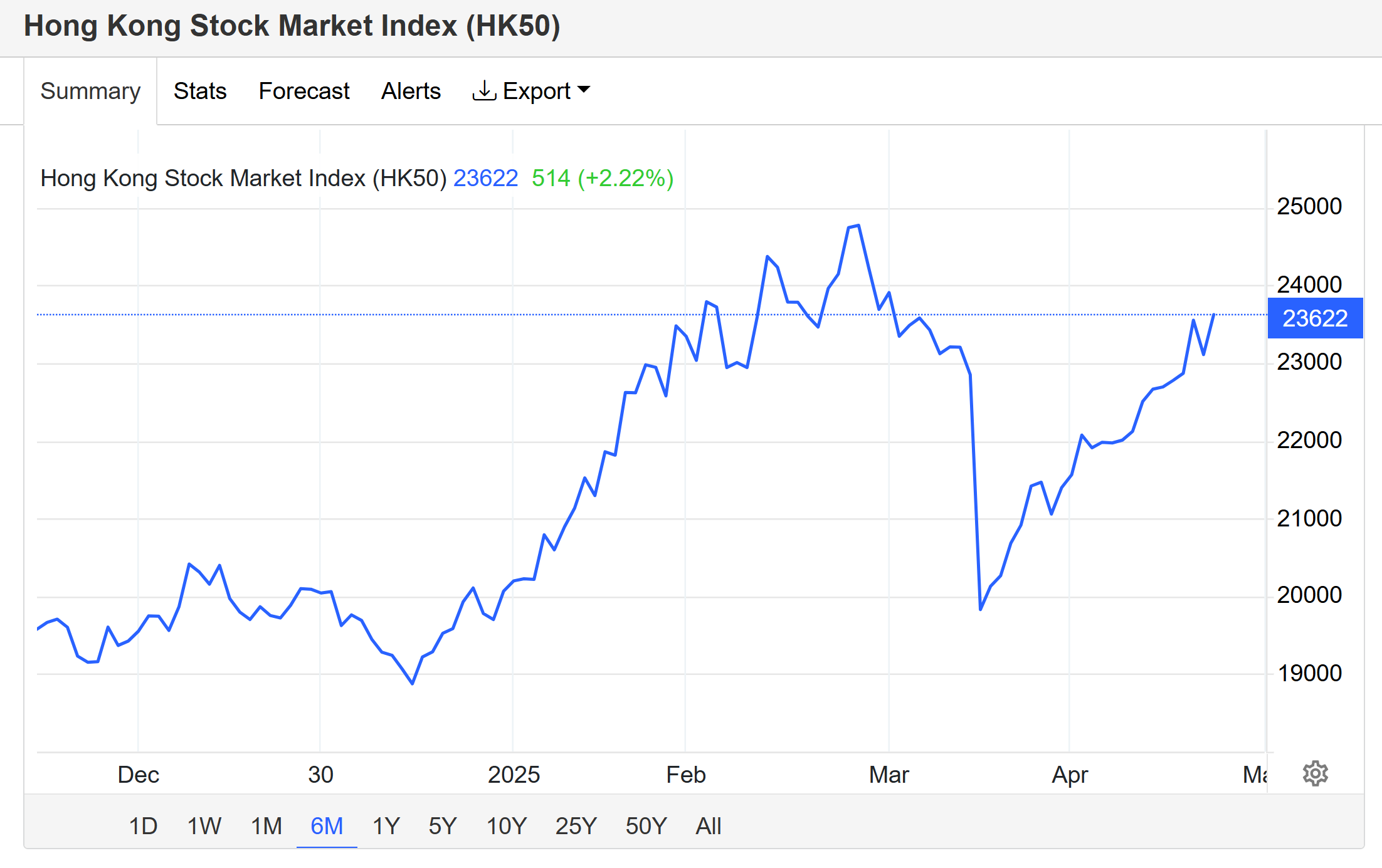Source: Cointelegraph
Original: “UBS: Asia's Wealthy Are Shifting from the Dollar to Cryptocurrency, Gold, and the Chinese Market”
According to financial services giant UBS Group, high-net-worth clients across Asia are gradually shifting their investments from dollar-based assets to a preference for gold, cryptocurrency, and Chinese assets.
"Gold has become very popular," said Amy Lo, co-head of Asia Wealth Management at UBS, during the Bloomberg New Voices event held in Hong Kong on May 13.
She pointed out that rising geopolitical uncertainty and ongoing market volatility are the main factors driving this shift. Investors, who have traditionally focused on U.S.-centric assets, are now seeking broader exposure to alternative asset classes such as cryptocurrencies, commodities, and other currencies.
Amy Lo stated, "Volatility will undoubtedly persist," prompting clients to rebalance their portfolios towards assets considered safe havens and new regional growth opportunities.
After years of low attention, the Chinese market is also regaining favor among ultra-high-net-worth individuals. Amy Lo noted that clients who previously avoided the Chinese market are now actively inquiring about investment opportunities.
The benchmark index in Hong Kong (mainly composed of Chinese companies) has become one of the best-performing indices globally in 2024, further stimulating investment interest.

The latest Bank of America fund manager survey also shows that global fund managers significantly reduced their exposure to the dollar in May, marking the largest underweight position in 19 years.
Christina Au-Yeung, head of Morgan Stanley's Asia Private Wealth Management Investment Services, revealed to Bloomberg that the recent tariff truce between the U.S. and China has created new optimism among investors.
"We are seeing truly interesting investment themes in the Chinese market re-emerging," she said.
Christina also pointed out that the risk awareness of Asia's wealthiest clients is increasingly heightened. The firm currently recommends a balanced portfolio allocation, including 40% fixed income, 40% equities, 15% alternative investments, with the remainder in cash or equivalents.
On May 11, the U.S. and China announced an agreement to temporarily reduce tariffs on each other's goods. Under the agreement, the U.S. will lower tariffs on Chinese imports from 145% to 30%, while China will reduce tariffs on U.S. goods from 125% to 10%.
In a recent report, Galaxy Digital analysts stated that Bitcoin is increasingly being viewed as a digital store of value, noting growing interest from institutions, exchange-traded funds (ETFs), and even governments.
"The supply and demand dynamics of Bitcoin are solidifying its position as a mature digital store of value," said Ian Kolman, co-portfolio manager at Galaxy.
Supporting this view, Jay Jacobs, head of thematic and active ETFs at BlackRock, noted on April 25 that countries are increasingly diversifying away from dollar reserves towards assets like gold—now also including Bitcoin (BTC)—as part of a broader shift in reserve strategies.
Related: Kima Joins Mastercard Sandbox for Stablecoin Card Recharge
免责声明:本文章仅代表作者个人观点,不代表本平台的立场和观点。本文章仅供信息分享,不构成对任何人的任何投资建议。用户与作者之间的任何争议,与本平台无关。如网页中刊载的文章或图片涉及侵权,请提供相关的权利证明和身份证明发送邮件到support@aicoin.com,本平台相关工作人员将会进行核查。




